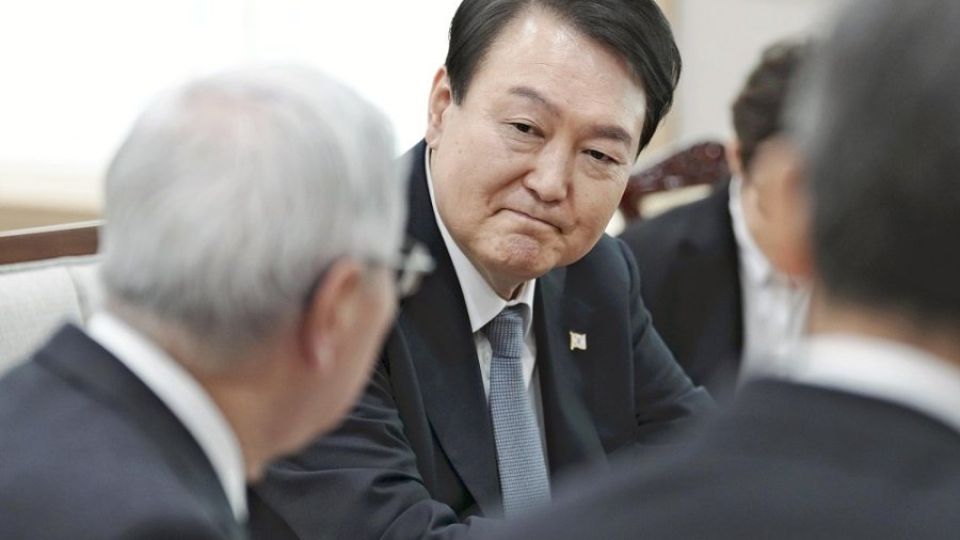March 15, 2023
SEOUL — South Korean President Yoon Suk-yeol expressed his desire to normalize Japan-South Korea relations when he comes to Japan on Thursday, based on the plan announced by Seoul to resolve a long-standing issue concerning lawsuits linked to wartime requisitioned workers from the Korean Peninsula, in an exclusive interview with The Yomiuri Shimbun in Seoul on Tuesday.
Yoon said the improvement in bilateral relations would bring benefits for the international community.
Regarding the possibility that the issue of former wartime requisitioned workers could flare up again, Yoon emphasized that “there is nothing to worry about.”
Yoon answered questions asked by Shoichi Oikawa, representative director and chairman of the board, senior deputy editor-in-chief of The Yomiuri Shimbun Holdings, in the interview at the presidential office, which lasted for about 80 minutes.
Yoon will be the first South Korean president to come to Japan in about 12 years, other than for attending international conferences held in Japan.
“The fact that I will go to Japan is itself major progress in light of the past bilateral relations,” Yoon said. “I expect that normalizing the bilateral relations will not only serve the interests of both countries but also will send a very positive sign to the international community.”
Based on this awareness, if Yoon were to be invited to the summit of the Group of Seven advanced nations to be held in Hiroshima City in May, he said: “It would be an opportunity to establish strong solidarity and cooperation with countries that share universal values mainly in security, economy and trade, as well as science and technology and other global issues.”
Yoon also mentioned the necessity of resuming a style of diplomacy in which the leaders of both countries visit each other periodically.
Yoon said, “Japan and the United States, as well as South Korea, have been exposed to North Korea’s nuclear and missile threats,” expressing his clear intention to promote Japan-U.S.-South Korea security cooperation and facilitate efforts to immediately share radar information to detect and track North Korea’s missiles.
Regarding Japan’s decision to possess counterattack capabilities that would enable it to attack missile-launch bases and other targets in enemy territory, Yoon stated: “The current situation is that North Korea’s intermediate-range missiles fly over Japan. I well understand it.”
As to the issue of former requisitioned workers, the largest pending issue between the two countries in recent years, Yoon pointed out that there is a discrepancy between the 1965 Agreement on the Settlement of Problems concerning Property and Claims and on Economic Cooperation between the two countries, which was concluded as part of the normalization of diplomatic relations, and the 2018 South Korean Supreme Court rulings that ordered Japanese firms to pay compensation to the former requisitioned workers.
“It is a responsibility of a political leader to resolve the issue in a way to achieve harmony,” Yoon said.
Yoon said he has been considering an approach in which a third party will be used to pay compensation to the plaintiffs.
Regarding fears within Japan of the issue being rekindled in the future, Yoon said: “It is a solution that would preclude exercising the right to claim damages later. I believe there is no worry about this point.”


